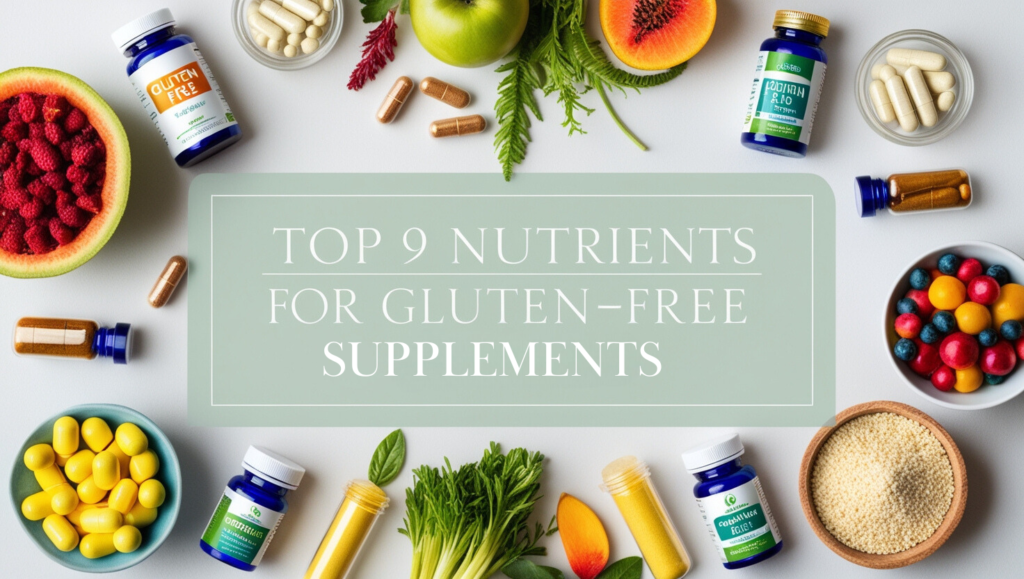A famous saying goes, “You are what you eat.“
The food we consume indeed makes up the building blocks of our body. People with celiac disease or gluten intolerance often struggle to get enough nutrients from their diet. Their body may become deficient in essential vitamins and minerals if they are not careful.
As a result, they experience health issues like fatigue, irritability, and muscle cramps. And you know, it gets harder to manage these symptoms when you are already struggling with digestive problems.
Luckily, gluten free supplements are available to help you meet your nutrient requirements. But with so many options, how do you know which ones are right for you?
This article has compiled a list of the top 9 nutrients to look for in gluten free supplements.
How Nutrients Can Be Lacking in a Gluten Free Diet?
A gluten free diet is necessary for people with celiac disease or gluten intolerance. However, this diet can also lead to nutrient deficiencies due to several reasons.
1. Lack of Fortified Grains
Fortified grains are a major source of nutrients like iron, folic acid, and B vitamins. Food manufacturers often fortify grains with these nutrients to improve their nutritional value. However, most of these fortified grains are not allowed in a gluten-free diet.
Instead, gluten-free grains like rice and corn are used, which are not always fortified compared to their wheat, barley, and rye counterparts.
A gluten-free diet’s lack of fortified grains can lead to deficiencies in essential nutrients. And this is where gluten-free supplements can come in handy. It can help fill the nutritional gaps in your diet.
2. Limited Food Choices
Limited food choices are another factor that can contribute to nutrient deficiencies in a gluten-free diet. People on a gluten-free diet often consume the same types of food, which can lead to monotonous and unbalanced meals.
A well-rounded and varied diet is crucial for meeting all your nutritional needs. And when you are limited to certain food choices, it becomes challenging to achieve this balance.
That’s why it is important to incorporate high-quality gluten-free supplements into your diet to meet your nutrient requirements.
3. Digestive System Damage
In Celiac disease, the immune system attacks the small intestine when gluten is consumed. It leads to damage in the lining of the small intestine, making it difficult for your body to absorb nutrients from food.
An unhealthy gut can also lead to malabsorption of essential vitamins and minerals. Even if you are consuming a nutrient-rich diet, your body may not be able to absorb all the nutrients effectively.
It becomes crucial for people with celiac disease or gluten intolerance to supplement their diet with the necessary vitamins and minerals. Incorporating high-quality supplements into your diet can help improve gut health and enhance nutrient absorption.
4. Increased Nutrient Demands
The body’s nutrient demands increase during illness, stress, or pregnancy. Celiac sufferers or gluten intolerants may have a higher demand for certain nutrients due to digestive issues. As their body is compromised, it may require extra nutrients to heal and function properly.
Supplements can help bridge the gap between dietary intake and nutrient demands, ensuring your body has all the necessary resources to stay healthy and strong.
5. Cross-Contamination Concerns
Cross-contamination is a major concern for people with celiac disease or gluten intolerance. Even trace amounts of gluten can trigger symptoms in individuals with celiac disease or gluten intolerance.
It’s not just food that can cause cross-contamination, but also supplements. Some supplements may contain hidden sources of gluten due to the manufacturing process or contamination during storage.
It is essential to choose certified gluten-free supplements and check for any potential allergens on the label before consuming them.
6. Medications Interfering with Nutrient Absorption
Certain medications that treat celiac disease symptoms or other health conditions can interfere with nutrient absorption. For example, nonsteroidal anti-inflammatory drugs (NSAIDs) and proton pump inhibitors (PPIs) have been linked to decreased absorption of vitamins and minerals like vitamin B12, magnesium, and calcium.
It is crucial to consult with your doctor or a registered dietitian before starting any new medication, especially if you are on a gluten-free diet. They can help monitor your nutrient levels and suggest appropriate supplements to compensate for potential deficiencies.
Top 9 Nutrients to Look for in Gluten Free Supplements
As discussed earlier, being celiac or gluten intolerant can result in nutrient deficiencies for a variety of reasons. Supplementing your diet with high-quality gluten-free supplements can help bridge the gap and ensure you get all the nutrients for optimal health.
With countless options, how can you be sure which supplements are best for you? To help, here’s a list of the top 9 essential nutrients to look for in gluten-free supplements:
1. Vitamin B12
Vitamin B12 is essential for red blood cell formation, nerve function, and DNA synthesis. It is found predominantly in animal products like meat, fish, and dairy. People on a gluten-free diet who do not consume enough of these foods may be at risk of vitamin B12 deficiency.
Supplementation with vitamin B12 is crucial for vegetarians or vegans following a gluten-free diet. Look for methylcobalamin or cyanocobalamin forms of vitamin B12 in supplements, as the body most easily absorbs them.
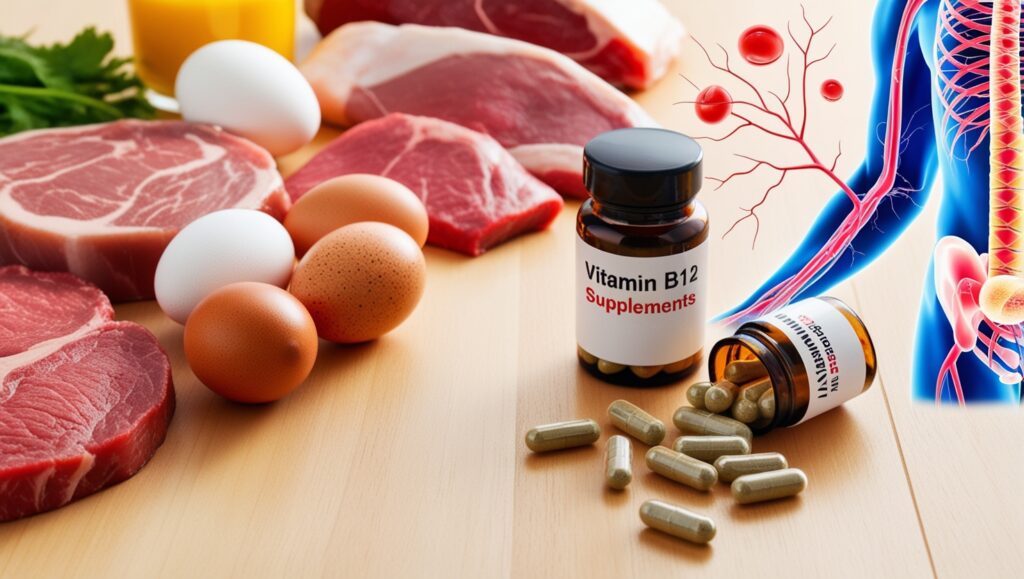
2. Vitamin D
Vitamin D helps regulate calcium levels in the body and plays a vital role in bone health. Our bodies can produce vitamin D when exposed to sunlight. Still, people with celiac disease or gluten intolerance may be at risk of deficiency due to limited sun exposure and malabsorption issues.
Consider getting your vitamin D levels tested and supplementing if necessary. Look for vitamin D3 in supplements, as it is the most active form of vitamin D.
3. Calcium
Calcium is essential for maintaining strong bones and teeth. It is normally found in dairy products, but there are also non-dairy sources such as leafy greens, almonds, and fortified plant-based milk.
If you are not consuming enough of these foods, you are likely not meeting your calcium needs. This can lead to an increased risk of osteoporosis and bone fractures.
Supplementation with calcium citrate or calcium carbonate can help ensure adequate intake. It is also important to note that taking too much calcium at once can interfere with iron absorption, so it’s best to take calcium supplements at a different time than any iron supplements.
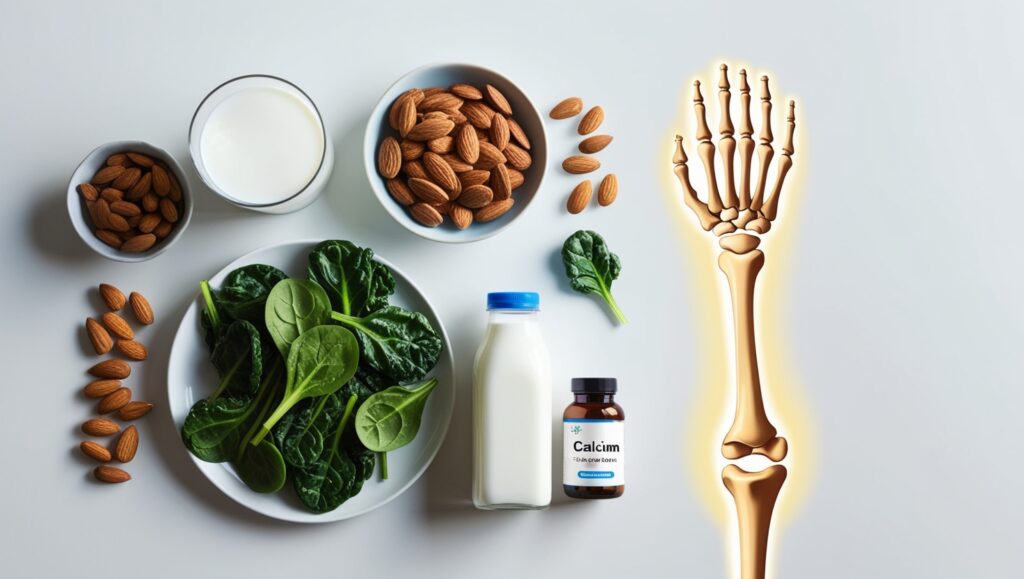
4. Iron
Iron deficiency is common among people with celiac disease or gluten intolerance due to impaired absorption in the small intestine. It is essential for producing hemoglobin, a protein that carries oxygen throughout the body. Symptoms of iron deficiency include fatigue, weakness, and decreased immune function.
If you are following a gluten-free diet and experience these symptoms, consider getting your iron levels tested and supplementing if necessary. Look for chelated forms of iron, such as ferrous bis-glycinate, which are more easily absorbed by the body.
5. Magnesium
Magnesium is involved in over 300 biochemical reactions and is essential for nerve function, muscle contraction, and healthy heart rhythm. People with celiac disease or gluten intolerance may have difficulty absorbing magnesium from food sources due to damage in the small intestine.
Supplementation with chelated forms of magnesium, such as magnesium glycinate or citrate, can help support adequate intake and prevent deficiency symptoms like muscle cramps and weakness.
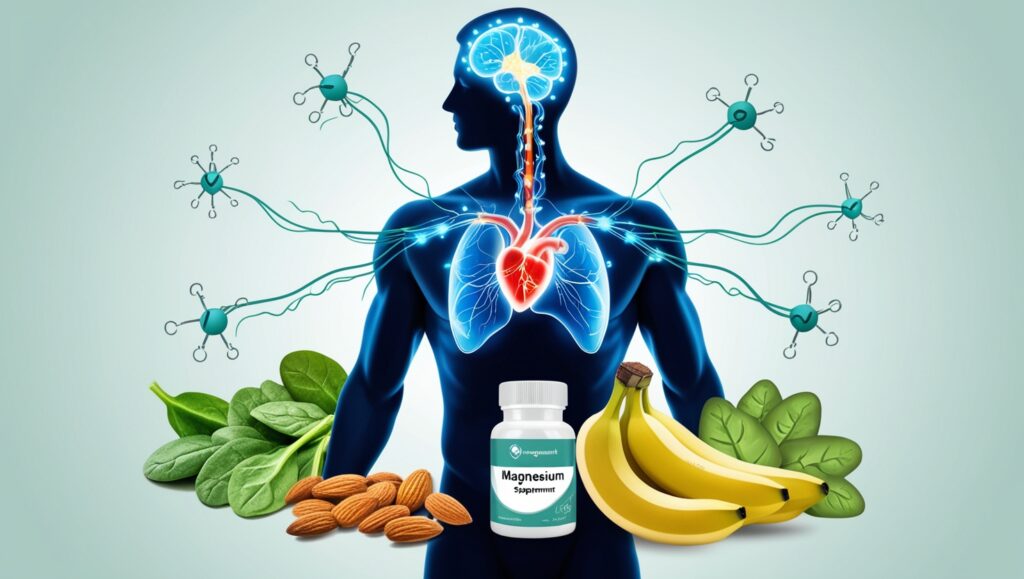
6. Zinc
Zinc is important for immune function, cellular growth and development, and wound healing. It is found in meat, seafood, legumes, and whole grains. However, people with celiac disease or gluten intolerance may have difficulty absorbing zinc from food.
Supplementation with zinc picolinate or gluconate can help support immune system function and prevent deficiency symptoms like hair loss and weakened immunity.
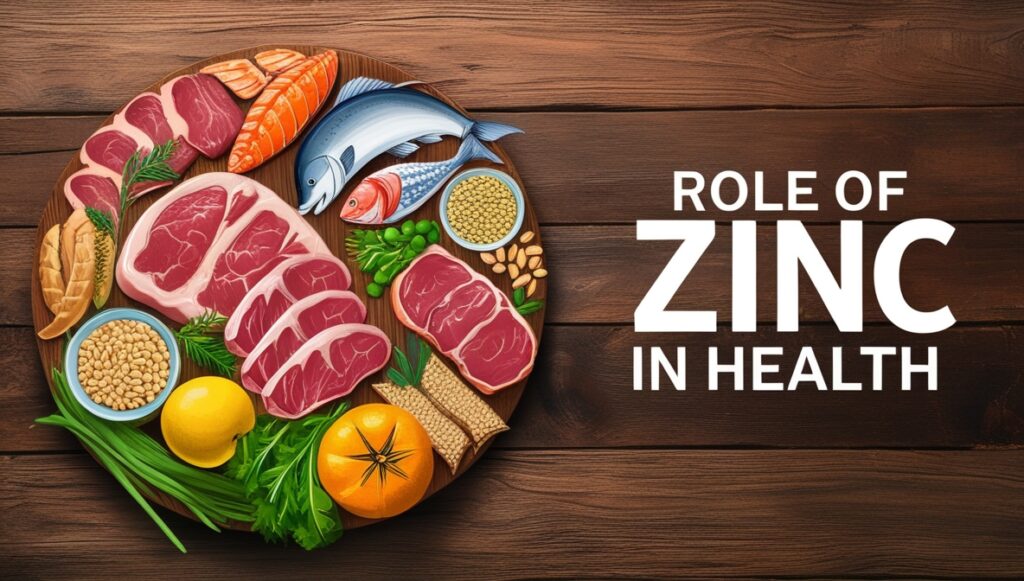
7. Vitamin C
Vitamin C is important for immune system function, wound healing, and collagen production. It is found in many fruits and vegetables, such as citrus, kiwi, bell peppers, and broccoli. However, you may be at risk of vitamin C deficiency if you are not consuming enough of these foods.
Supplementation with vitamin C can help support immune function and prevent deficiency symptoms like fatigue and weakened immunity.
8. Probiotics
Probiotics are beneficial bacteria that reside in our gut and play a crucial role in digestion and immune system health. People with celiac disease or gluten intolerance may have an imbalance of gut bacteria due to damage in the small intestine.
Supplementation with probiotics can help restore balance and improve digestive health. Look for various strains in your probiotic supplement, including Lactobacillus and Bifidobacterium.
It is also important to note that some probiotics may contain gluten-containing ingredients, so be sure to choose a gluten-free option.
9. Omega-3 Fatty Acids
Omega-3 fatty acids are essential for brain function, heart health, and reducing inflammation. They are found in fatty fish, walnuts, flax, and chia seeds. People following a gluten-free diet may not consume enough of these foods and, therefore, may be at risk of omega-3 deficiency.
Supplementation with fish oil or algae-based omega-3 supplements can help support adequate intake and prevent deficiency symptoms like dry skin and joint pain.
How to Pick the Right Gluten Free Supplement?
Choosing the right supplement can be overwhelming, especially for those following a gluten-free diet. Here are some tips to help you pick the best option for your needs:
- Read Labels Carefully of Gluten Free Supplements
Always read labels carefully to ensure the supplement is certified gluten-free and free of any potential allergens or intolerances.
- Consider Your Individual Needs
Look for certifications from third-party organizations like the Gluten-Free Certification Organization (GFCO) or NSF International.
Consult with a healthcare professional before starting new supplements to determine which ones may benefit you based on your specific dietary needs and health goals.
Consider age, gender, activity level, and any existing medical conditions.
- Look for Variety of Gluten Free Supplements
Aim to choose a supplement that offers a variety of essential nutrients and strains rather than relying on one ingredient or type of bacteria.
It can help ensure you get a well-rounded balance of nutrients to support your overall health.
- Rotate Brands and Types of Gluten Free Supplements
To avoid overloading on any one ingredient or strain, consider rotating between different brands and types of supplements.
This can also help prevent potential nutrient imbalances from long-term use of the same supplement.
- Be Mindful of Potential Cross-Contamination
Some supplements may contain ingredients derived from gluten-containing sources, such as wheatgrass or barley grass.
Be cautious of potential cross-contamination and opt for supplements that are certified gluten-free or from brands with strict manufacturing processes.
- Stick to a Balanced Diet
Remember, supplements should supplement a healthy diet, not replace it.
Focus on consuming nutrient-dense whole foods as the foundation of your diet and use supplements to fill in any nutritional gaps or deficiencies.
Conclusion
Supplementation can be a helpful tool for celiac and gluten intolerants to ensure adequate intake of essential nutrients. By reading labels carefully, considering individual needs, and being mindful of potential cross-contamination, you can choose the right supplement for your health goals.
Remember to prioritize a balanced diet and consult a healthcare professional before starting new supplements. With these tips, you can maintain optimal health on a gluten-free diet. So don’t let dietary restrictions keep you from getting all the nutrients your body needs! Stay informed and proactive about your nutrition to support overall well-being on your gluten-free journey. Happy supplementing!
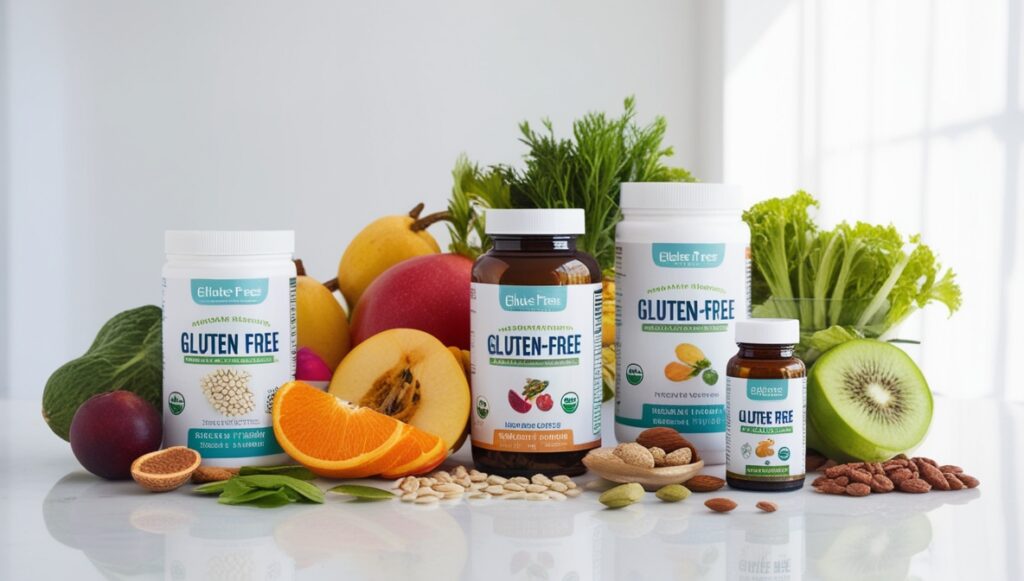
___
Disclaimer: The information provided in this document is for educational purposes only and is not intended as a substitute for professional medical advice, diagnosis, or treatment. Please seek the advice of a qualified healthcare provider if you have any questions regarding your individual nutritional needs or potential nutrient deficiencies. Knowledge is power when it comes to managing our health and well-being! Let’s continue learning and growing together.
___
We hope this document has been informative and helpful in understanding the importance of proper nutrition on a gluten-free diet. Always prioritize your health and make informed choices for your needs. Here’s to making the most out of every day by caring for ourselves from the inside out! Cheers to good health!
___
*Thank you for reading! Stay tuned for more educational content related to living a healthy, gluten-free lifestyle. Don’t forget to share this document with others who may benefit from this information.
References:
- “Certified Gluten-Free.” Gluten Intolerance Group, https://gluten.org/programs/certification/. Accessed 21 Oct. 2020.
- “NSF International Certified for Sport®.” NSF International, https://www.nsf.org/services/by-industry/sports-certification/certified-for-sport-products. Accessed 21 Oct. 2020.
- Huber, Jennifer et al. “Individualized Nutrition Intervention is of Major Benefit to Outcomes in Patients with Irritable Bowel Syndrome-a Randomized Controlled Trial.” Nutrients vol. 11,3 460. 24 Feb. 2019, doi:10.3390/nu11030460
- “Fish Oil.” National Institutes of Health Office of Dietary Supplements, https://ods.od.nih.gov/factsheets/Omega3FattyAcids-Consumer/. Accessed 21 Oct. 2020.
